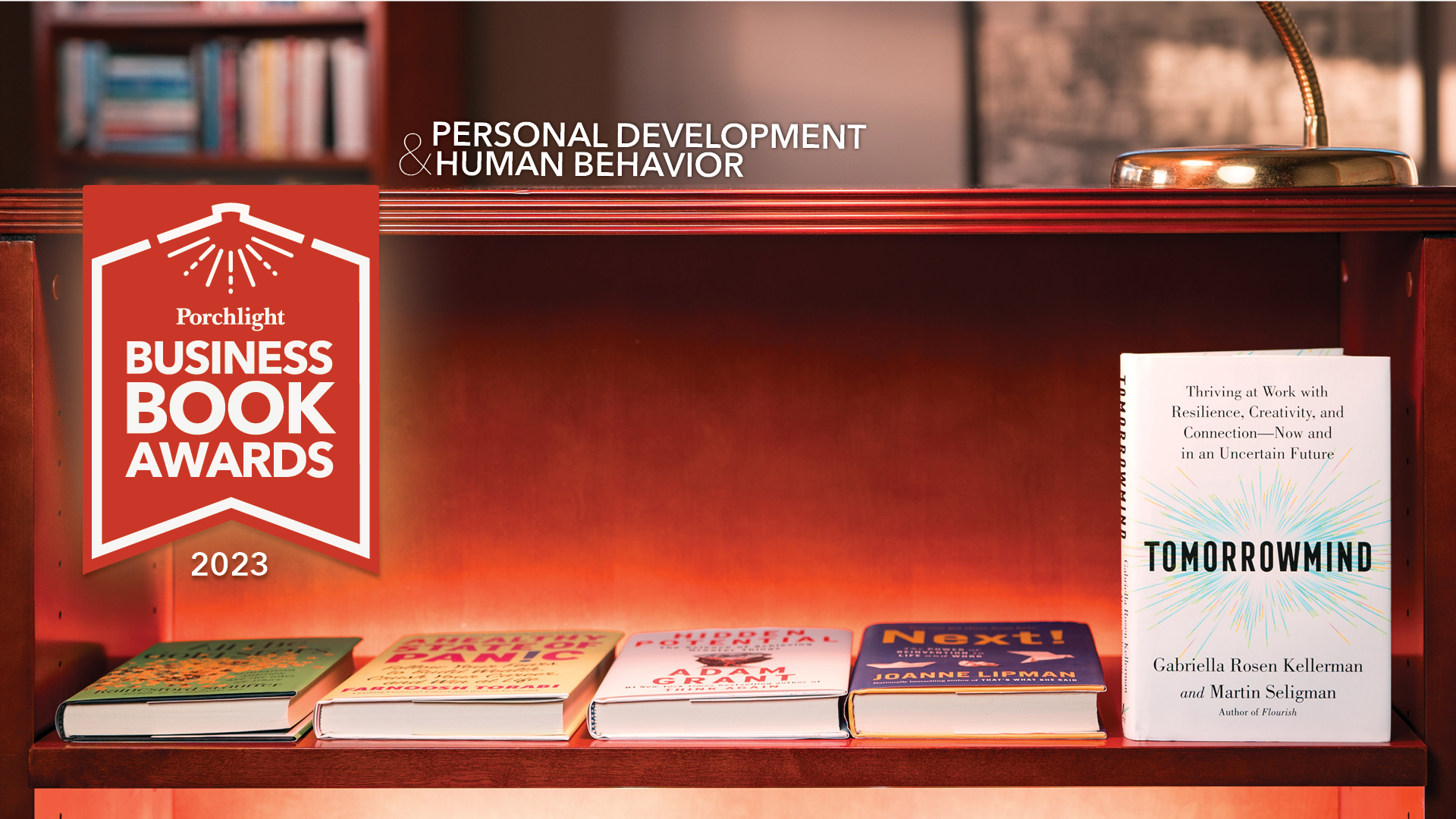Tomorrowmind | An Excerpt from the Personal Development & Human Behavior Category
Porchlight's Creative Director Gabbi Cisneros recently wrote:
The analyses and advice in the book are thorough, level-headed, and human-centric, making it applicable to a wide range of readers. And even without the threat of robots taking over our jobs, applying the advice from Tomorrowmind could make our workplaces and organizations more innovative and resilient than ever.
The following excerpt comes from the book's Introduction.

A great deal of ink has been spilled on the topic of how the so-called future of work will change business. But how will it change us? And how can we make sure we come out on top? We’ve now partnered with hundreds of companies, employing millions of workers around the globe to face these questions.
This book will share our answers. We begin by grounding our understanding of today’s challenges in the past. This is not the first time that our species has had to adapt to a new world of work. As we’ll see in chapter 1, our brains evolved over millions of years in relationship to a specific type of work, the type our ancestors knew best: hunting, fishing, and gathering. Foraging is still the work our brains are best adapted for. The forager’s brain is well suited to a five-hour workday, to communal life, to the creative exploration of new terrain, and to an ever-present connection to nature. By about 10,000 BCE, however, that same brain had invented technologies and structures that produced our very first labor transformation, from foraging to farming. This was an immensely painful transition given the mismatch between our forager capabilities and this new life of a farmer.
Each subsequent labor transformation—first to agriculture, then industrialization, and then, today, to our technology-driven world of work—has come at a wrenching human cost. In some cases that cost has been so great that historians and anthropologists still struggle to explain how it happened. Why, as a species, would we have shifted to such alien forms of work? Forms of work that run so contrary to our native abilities that pursuing them causes human hardship? Greater collective productivity and technological sophistication have been the societal reward. But that reward has come on the backs of billions of long-suffering individuals who never reaped its benefits.
Today’s transformation, a future alive and present all around us, threatens our well-being in its own unexpected new ways. As chapter 2 details, the sheer pace of change means we are now already changing or losing jobs twice as fast as at the height of industrialization. By one estimate, eight hundred million global workers will see their jobs replaced by automation by 2030. As many as 80% of us will see our wages reduced due to automation in this same period.
We know how this will play out. In the year after job displacement, death rates increase by 50–100%. Unemployment alone raises our risk of heart attack by 35%, and, along with job instability, raises the rate of nearly every major category of psychological distress—depression, anxiety, and substance abuse.
Now factor in the risks driven by the new nature of work itself. Start with the socially isolating aspects. Gone are the days of twenty-year-long colleagueship, of stable, in-person work communities that would support us throughout our careers. Average job tenure is about 2.8 years for workers aged twenty-five to thirty-four. Peers come and go, as do we, creating a historic and unnaturally fast rate of turnover in our working groups. An estimated 25–30% of the US workforce will be working remotely in the years to come. The prevalence of loneliness has doubled in the last twenty years, increasing our rates of depression, heart disease, and of all-cause mortality.
Add to that the volatility and uncertainty that we must navigate—individually and as organizations—even under the best of circumstances. Companies find their business models disrupted overnight; the ankle-biting competitor is suddenly the industry leader. Teams learn that the product they’d spent months building is now obsolete, the group fractured into a half dozen pieces, each recycled into entirely new initiatives around the globe. Sixty-one percent of full-time employees say the stress of the modern workplace has made them sick; this tumult accounts for about 120,000 excess deaths per year in the US, and up to one million in China.
And yet.
We are not doomed.
[…]
We cannot stop change. But we don’t need to fall victim to it. We hope that this book will become your dog-eared, reread, personally annotated guide to flourishing as a fully human being in a world of work that’s increasingly controlled by machines. We hope this knowledge will help you sprout the wings to fly higher than you ever could have imagined. The skills described here won’t be developed overnight. They will take thought, practice, and commitment. In time they will function as superpowers to guide you steadily over swirling waters, to help you preserve balance and focus through a centered, empowered lens on the world. We call this thriving. This is the lived experience of work that we all deserve, and which we can all achieve.
Copyright © 2023 by Gabriella Rosen Kellerman and Martin E. P. Seligman. From Tomorrowmind: Thriving at Work with Resilience, Creativity, and Connection—Now and in an Uncertain Future by Gabriella Rosen Kellerman and Martin E. P. Seligman. Reprinted by permission of Atria Books, a Division of Simon & Schuster, Inc.



